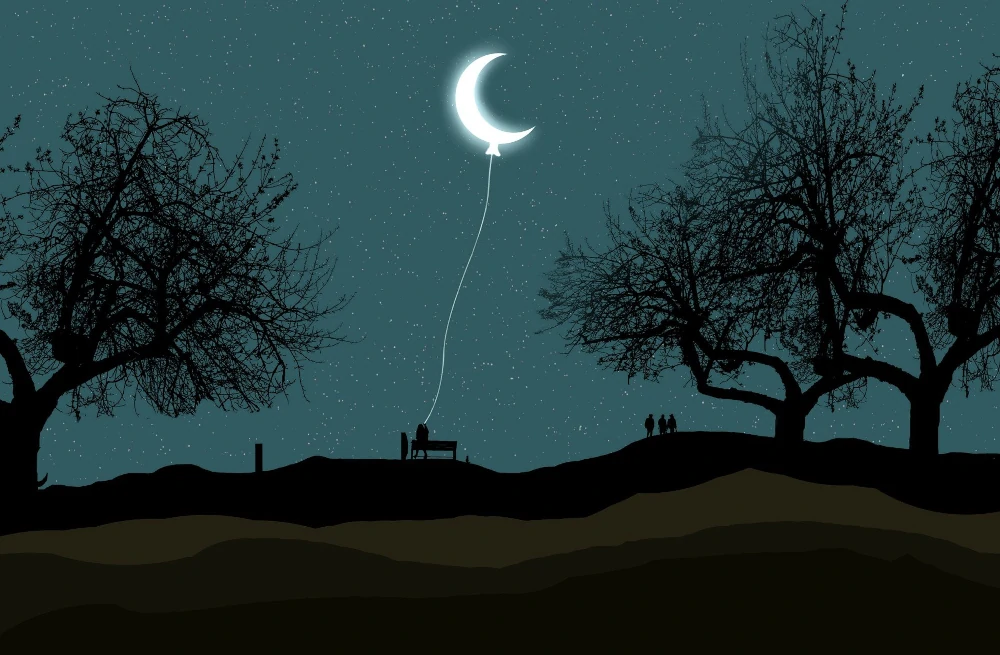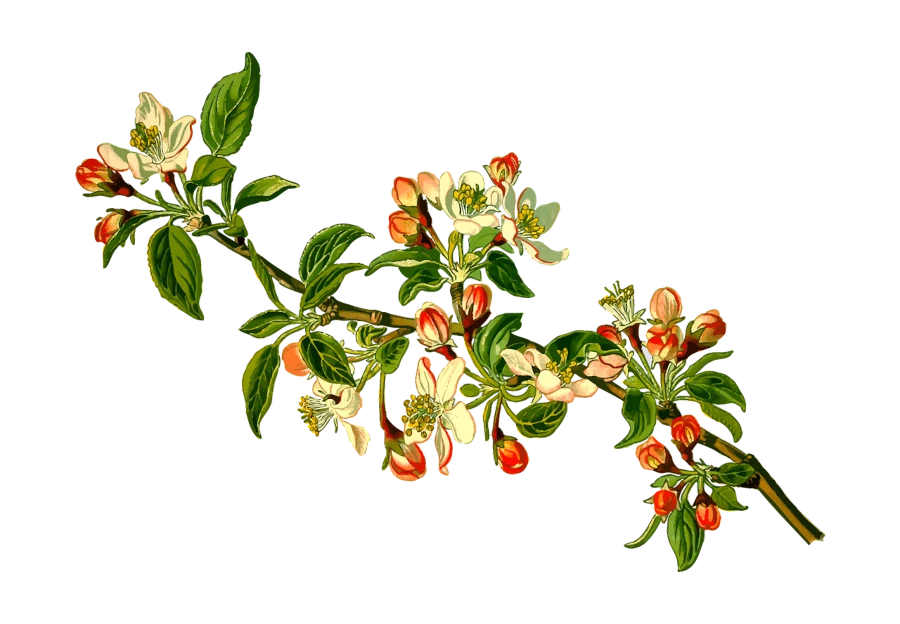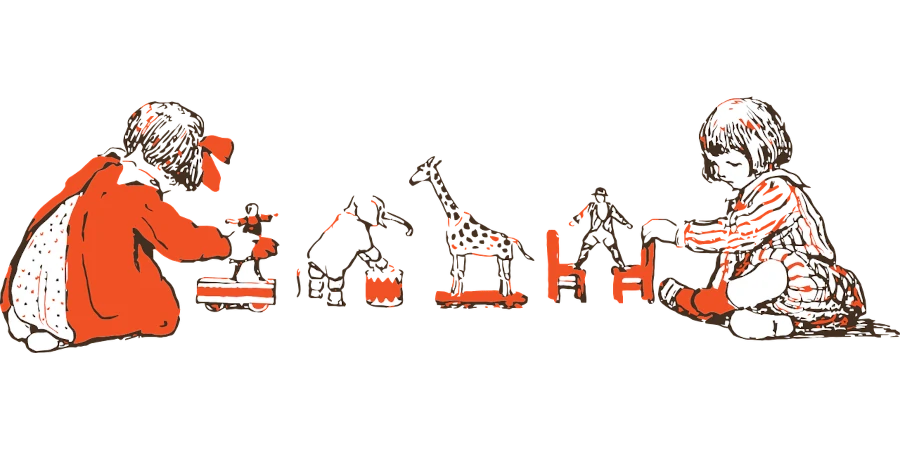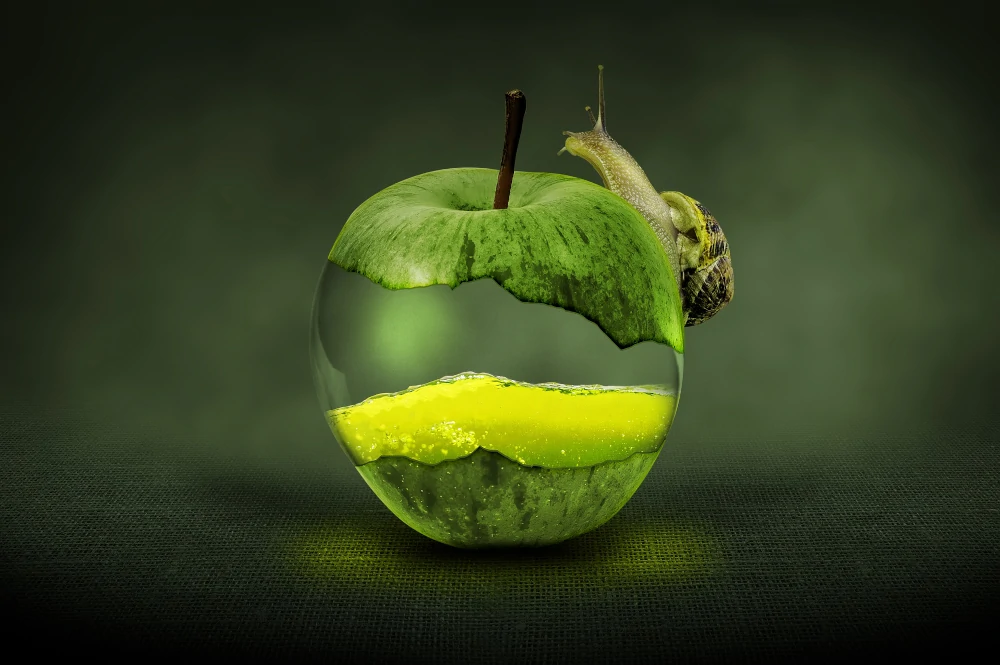
8 Poems Worth Memorizing
Words By Aoife Lynch, Art By Iván Tamás
What’s your attention span like at the moment? The pandemic has made concentrating more difficult for many of us, and for those who love books, reading novels has gotten a lot more challenging than it used to be. I’ve found that, despite its reputation as a difficult form, poetry has actually become easier for me to read than novels. Unlike novels, poetry needs short, focused bursts of concentration. These brief, intense periods of focus are perfect for reading and remembering poetry. And since it’s associative rather than chronological, poetry as a form is uniquely suited to being memorized. By using patterns of repetition—rhyme, assonance, alliteration, meter, recurrent imagery—poems make themselves relatively easy to remember. It helps too that because so much poetry comes from oral storytelling traditions, it’s a very aural form. I find that, even when I’m not trying, the rhythm of a poem or a few perfect lines gets easily stuck in my head. And so when the world is too much, and reading longform work is difficult, I satisfy my thirst for literature by committing poetry to memory. Here are some poems worth remembering:
“Animals” by Frank O’Hara
This wonderful poem bridges the distance between love and loss, showing how all love is a little bit bittersweet and all love poems are a little bit elegiac. At 12 lines, this poem is great for memorizing because it’s short and sweet, and because each stanza works as a discrete whole. If memorizing the whole poem is too much for you right now, start with the perfect final lines:
“I wouldn’t want to be faster
or greener than now if you were with me O you
were the best of all my days”
“The Shampoo” by Elizabeth Bishop
“The Shampoo” is a bold and tender depiction of aging love. Bishop pairs the stars and the night sky with the everyday actions and observations of loving someone, in a way that both elevates the quotidian elements of love, and grounds the romance of the night sky. Greying hair gets turned into stars, a tin basin is compared to the moon and intimacy pushes aside the fear of time passing. It’s not a hard poem to memorize because Bishop has such mastery of rhyme and each of the three stanzas follows an ABACBC rhyme pattern. If you’re going to memorize just one section, though, the last stanza is beautiful:
“The shooting stars in your black hair
in bright formation
are flocking where,
so straight, so soon?
–Come, let me wash it in this big tin basin
battered and shiny like the moon”
“The Good Morrow” by Jack Underwood (from John Donne’s poem of the same name)
We’re cheating a little bit here by sharing two poems: one originally written by John Donne, and then a modern update of the same poem by Jack Underwood. Both poems are simultaneously earnest and playful, exploring love’s ability to transform and the adventure that comes with loving someone. If you’re just memorizing one section, I recommend the opening lines of Jack Underwood’s version:
“I’m not sure I remember what we did
before we LOVED. Were we gherkins bobbing
in our harmless jars, with vinegar and seeds?
Or were we stuffed in a tube of sleep for years?”
“A Small Needful Fact” by Ross Gay
Many of the poems I’ve suggested so far have been about love. Although this poem expresses immense tenderness, it’s an elegy rather than a love poem. “A Small Needful Fact” balances between hope and hurt and should be remembered in its entirety. It’s so compact and every line is so vital that to take only a line or two would do the poem as a whole, and the man it remembers, a disservice.
“A Small Needful Fact”
Is that Eric Garner worked
for some time for the Parks and Rec.
Horticultural Department, which means,
perhaps, that with his very large hands,
perhaps, in all likelihood,
he put gently into the earth
some plants which, most likely,
some of them, in all likelihood,
continue to grow, continue
to do what such plants do, like house
and feed small and necessary creatures,
like being pleasant to touch and smell,
like converting sunlight
into food, like making it easier
for us to breathe.
“The Blue Terrance” by Terrance Hayes
Terrance Hayes revises black identity under his own terms in his poetry. This poem reflects on his writing and sense of what art can do. Hayes’s poetry remarkably captures the strangeness and physicality of personhood. Its smooth end and internal rhymes will make this poem stick around in your mind even before you start trying to memorize it. Here’s a section to start with before tackling the whole poem:
“That’s why
the blues will never go out of fashion:
their half rotten aroma, their bloodshot octaves of
consequence; that’s why when they call, Boy, you’re in
trouble. Especially if you love as I love
falling to the earth. Especially if you’re a little bit
high strung and a little bit gutted balloon.”
“kitchenette building” by Gwendolyn Brooks
Gwendolyn Brooks’s poetry leaps off the page into your ear and into your mouth—it’s such aural poetry, which makes it delicious to speak aloud. Take the opening lines of “kitchenette building,” a poem about art and dreaming and the way the circumstances of real life sometimes leave little space for those things. Brooks’s exploration of these ideas culminates in a merging of the everyday and the artistic. Through the existence of this poem–which interrogates both art and the social systems that force people to live in cramped, unsuitable spaces–she shows that that reality and the dreaminess of language can coexist, and that all aspects of life can make for great poetry. At the same time, Brooks exposes the ways in which being forced to live in spaces like the one described can restrict people’s capacity for creation:
“We are things of dry hours and the involuntary plan,
Grayed in, and gray. ‘Dream’ makes a giddy sound, not strong
Like ‘rent,’ ‘feeding a wife,’ ‘satisfying a man.’”
“Foreign Body” by Kimiko Hahn
Kimiko Hahn’s poetry is full of linguistic pleasure and strangeness. Memory and female lineage are vital to her work, and her poetry interrogates familial and cultural inheritance. This poem is an exploration of all of these things. If you’re just going to learn one part of the poem, these opening lines are gorgeous:
“This is a poem on my other’s body,
I mean, my mother’s body, I mean the one
who saved her braid of blue-black hair
in a drawer when I was little.
Meaning one I could lean against —
against not in resistance. Fuzzy dress
of wuzzy one. Red lipstick one.
Kitchen one. Her one to me”
“This Moment” by Eavan Boland
Eavan Boland’s work draws upon the magic of everyday life, turning suburbia and domestic life into spaces of suspense and possibility—subjects worth writing about. Boland’s work emphasizes women’s voices, allowing women to exist as complex individuals rather than symbols to bolster a misogynistic cultural identity. Its brevity makes choosing just one line from this poem to memorize difficult, but the last lines are particularly resonant:
“Stars rise.
Moths flutter.
Apples sweeten in the dark.”
“Cutting Greens” by Lucille Clifton
“Cutting Greens” is a poem about food and domesticity that does what poetry does best: makes quotidian things strange and new. These lines encapsulate this poem’s interest in the strangeness and ferocity of hunger and care:
“just for a minute
the greens roll black under the knife,
and the kitchen twists dark on its spine
and I taste in my natural appetite
the bond of live things everywhere.”
So, without further ado: let’s get memorizing! (Pssst, if you’re looking for more great poetry, we have a vast treasure trove of poems here at F(r)iction Log!)








